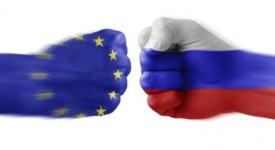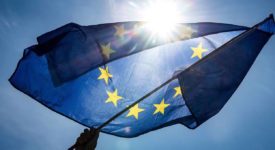„The EU will react decisively and strongly“ if the US follows through on its threat to put duties on EU goods such as beer, gin and olives, warned Phil Hogan, European Commissioner for Trade, against the backdrop of an intensifying long-running row over aviation subsidies between the two sides. Last year, the US imposed tariffs of 15-25% on $7.5bn worth of European goods, and in June this year, in a move which has caused concern in Brussels, the US said it was considering new taxes on additional EU trade worth $3.1bn annually. Speaking via video link to MEPs on Parliament’s international trade committee, Phil Hogan, an Irish Fine Gael politician, warned that “the ball is in their [the US’] court. But when it comes to the Boeing case, I want to reassure you that the EU will react decisively and strongly if we don’t get the outcome we seek on what is a 15-year-old dispute.”
While the World Trade Organization (WTO) has recently ruled that EU subsidies to European plane maker Airbus in 2004 were illegal, it is also considering a similar case involving illegal support for US aerospace firm Boeing, which could see Brussels impose duties on the US later this year. “If these [US] investigations, into everything from steel products to trains, go any further, then the EU will have to stand together and act as well,” Hogan said while also criticising new US national security investigations against EU goods that cover products from transformers and mobile cranes to steel nails. The dispute, the Commissioner said, highlighted the “difficulty” of managing the EU’s relationship with the US.
When commenting on a revision of the EU’s rights on the enforcement of international trade rules, Deputy Chair of the Committee, Anna-Michelle Asimakopoulou, warned that the EU countries “need tools that guarantee our strategic autonomy against Chinese unfair competition or President Trump’s out-of-control tariff diplomacy. In the event of a trade attack, the EU cannot afford to remain passive. The EPP [Group] is ready to put on the boxing gloves when trade is at stake.” The revision of the law aims to protect EU interests when third countries, with the US and China cited as examples, unilaterally adopt restrictions in access to their market and simultaneously block the WTO’s dispute settlement process.
Article Categories:
ECONOMY & TRADE





